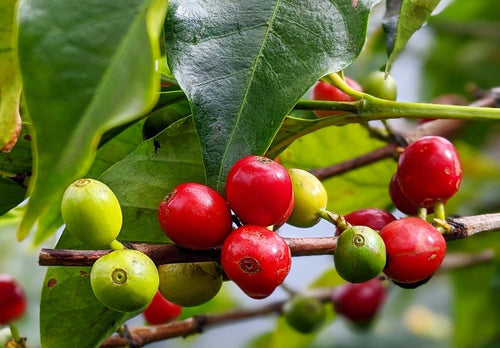29 Nov 2022
The coffee market has evolved significantly in recent years, moving away from the traditional and classic. The assiduous consumer has had to become acquainted with various terms within the coffee industry, ranging from the variety of coffee to the multiple processes prior to packaging the coffee, to finally arrive at words that describe the different types of coffee, among which gourmet coffee, premium coffee, and specialty coffee stand out.
On this occasion, we will discuss the characteristics that distinguish it as a premium coffee.
Tasters with specialized knowledge
The coffee is classified using a process that evaluates the quality of the grain and then ranksit according to the findings. Specialized tasters evaluate specific parameters to determine which category each type of coffee falls into.
Quality evaluation process
The Specialty Coffee Association of America defines this process as taking 300 grams of green coffee, which is the amount of product to be analyzed. Green coffee is made from unroasted coffee beans and contains more chlorogenic acid (a chemical compound found in coffee that benefits our health) than roasted coffee. Similarly, the moisture content of the grain is used to determine the quality of green coffee.
The roasting process will be hampered if there is too much or too little moisture. Defects are the first thing to look for in this classification. Defects are classified into two types: primary and secondary. Primary defects include full black, full sour, pod/cherry, large stones, medium stones, large sticks, and medium sticks.
And the secondaries are parchment, hull/husk, broken/chipped, insect damage, partial black, partial sour, floater, shell, small stones, small sticks, and water damage.
In this case, the goal is to have the smallest number possible. However, primary defects are permitted in premium coffee (this is not the case for specialty coffee). Furthermore, up to 8 full defects, including the secondary defects that are allowed to be considered premium. In contrast, specialty coffee may have up to 5 secondary defects but none of the primary defects.
Cupping
After the green coffee has been graded, it is roasted and re-graded in a process called cupping. Now that the qualities and characteristics of the coffee have been evaluated, they will be rated on a scale of 1 to 100, where the highest number indicates the best quality coffee.

The following characteristics and attributes will be assessed during this process: fragrance and aroma, body and mouthfeel, acidity, flavors and tasting notes, aftertaste, and defects. The coffee will be considered premium if it receives a rating between 70 and 79 and has at least one distinguishing feature, such as body, flavor, aroma, or acidity. Meanwhile, specialty coffee must have a rating equal to or above 80.
Other characteristics of premium coffee
Many premium and specialty coffee varieties come from microclimates with specific humidity and lighting conditions, which give each coffee unique characteristics. Similarly, these coffee varieties are typically grown at high altitudes.

Also, the premium coffee harvest is successful because it occurs at the precise time to do so, ensuring consistency in flavor and quality over time.
Sustainability
In recent years, sustainability has become increasingly important in a variety of products around the world, including premium and specialty coffee. This is why multiple factors contributing to the final product's sustainability are considered when labeling coffee.
Farming, which covers various stages of production, is one of the most critical stages in sustainability . The farming process must ensure that the techniques, equipment, and methods used have no negative impact on the environment. Moreover, this process should not affect the coffee plant.

Employees linked to the farming process must have fair or superior working conditions; this includes fair wages and safe environments.
Farming businesses typically seek certifications demonstrating that their conditions are sustainable and high quality in terms of product, labor, and environment.
Here at JA Coffee, we guarantee that our specialty coffee meets all of the criteria for being classified as such. We develop relationships with producers and visit the farms to ensure that they use sustainable practices that help the environment and local communities. We work with different cooperatives that support farmers and their families and educate them on best practices. Responsibly produced coffee tastes so much better.

